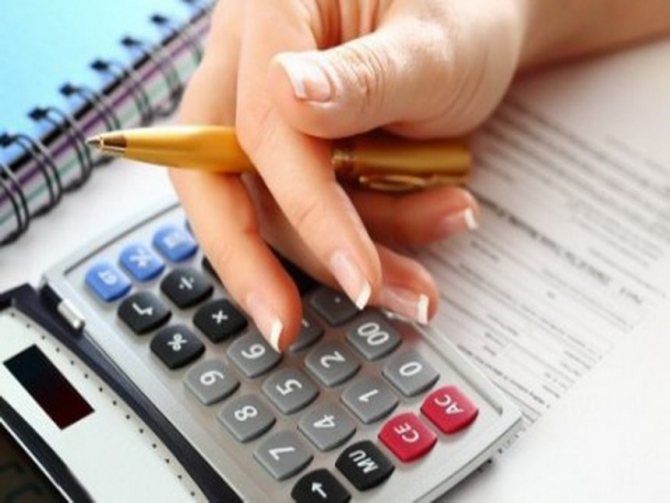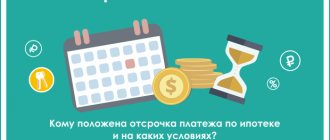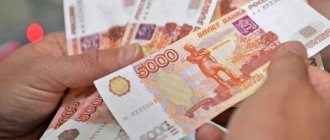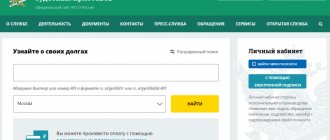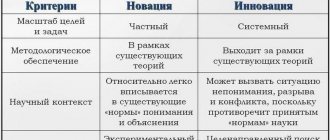HomeArticles on bankruptcy of individualsHow to write off debts for individual entrepreneurs
Author of the article: Konstantin Milantiev
Last revised August 22, 2020
Reading time 7 minutes
The crisis that arose due to the pandemic hit all domestic businesses. Individual entrepreneurs, who could barely stay afloat even without restrictions, also suffered. And with the end of the period of state support and holidays for tax audits, writing off the debts of individual entrepreneurs will become a pressing issue among entrepreneurs. Private business owners have several ways to write them off, and it is better not to delay, but to prepare before all restrictions are lifted.
What debts can be written off
Writing off an entrepreneur's debt is a complicated but doable procedure. There are several mechanisms for writing off business debts. You can legally get rid of various types of debt:
- tax arrears;
- responsibilities for payments to the budget and extra-budgetary funds;
- on loans and credits;
- to counterparties.
Debts to employees cannot be written off—salaries and compensation under the Labor Code will have to be paid even after bankruptcy.
Art. 216 of the Insolvency (Bankruptcy) Law
An entrepreneur has the right to close an individual entrepreneur with debts. Debts will not disappear from this, but will simply be transferred to the individual. And then it will be possible to get rid of them by recognizing the citizen’s bankruptcy.
An individual can open an individual entrepreneur immediately after being declared insolvent. If you filed for bankruptcy as an entrepreneur without closing your status, you cannot re-register with the tax office as an individual entrepreneur for 5 years.
How debts are written off
In order for an entrepreneur to have his debts forgiven, he can use:
- tax amnesty to write off arrears on taxes and insurance contributions from the entrepreneur;
- bankruptcy of an entrepreneur, which makes it possible to write off debts on individual entrepreneurs and at the same time personal loans, housing and communal services and fines within 10–12 months;
- If you have wage debts incurred during the pandemic, you can turn to government support.
The specific scheme and procedure for writing off debts depends on what kind of individual debts the citizen has. All these mechanisms are regulated by separate regulations.
Law on writing off debts of individual entrepreneurs
Opportunities for entrepreneurs to get rid of debts are prescribed in the following regulatory documents:
- Federal Law No. 436-FZ of December 28, 2020, regulating tax amnesty mechanisms;
- Federal Law of October 26, 2002 No. 127-FZ “On Bankruptcy”, which defines the procedure and mechanism for declaring an individual entrepreneur insolvent;
- Federal Law No. 166-FZ of June 8, 2020, aimed at supporting business during the coronavirus pandemic;
- Federal Law No. 98-FZ of April 1, 2020, imposing a moratorium on bankruptcy of entrepreneurs at the request of creditors or an authorized body.
The first 2 legislative acts regulate the forgiveness of individual entrepreneurs' debts, while laws No. 166-FZ and 98-FZ are aimed at supporting business and will allow the businessman to stay afloat in this difficult time.
Tax amnesty and amnesty on insurance premiums
Fiscal amnesty is carried out according to Art. 11 and 12 of Law No. 436-FZ. According to the tax amnesty, write-off of individual entrepreneurs' debts is introduced for arrears that arose before 01/01/2015. In addition, the debtor must not have tax debts for later periods.
An entrepreneur gets rid of the following types of debts:
- on VAT and personal income tax;
- arrears on land and property taxes;
- debts under the Unified Agricultural Tax, Unified Internal Income Tax, and the simplified tax system;
- debts of entrepreneurs operating on a patent basis
- penalties for these arrears.
In addition to taxes, the fiscal amnesty gives businessmen the opportunity to write off debts to the Pension Fund incurred as of 01/01/2017. However, not all insurance debts are subject to write-off, but only “excess accruals” - accrued from the accounting of the entrepreneur’s eight-fold minimum wage.
But according to 436-FZ, the tax inspectorate and the Pension Fund of the Russian Federation will not write off the following debts of individual entrepreneurs
:
- excise taxes introduced upon the sale of excisable product groups;
- tax deductions related to mining;
- VAT payments paid when transporting goods abroad;
- insurance premiums for hired employees of individual entrepreneurs.
Also, the tax amnesty does not give entrepreneurs a chance to get rid of debts to creditors or suppliers. But you can write them off if you declare yourself bankrupt.
Tax amnesty: what debts will be forgiven for business

What a tax amnesty is and how it will affect the situation of individual entrepreneurs was examined by the Argument .
Amnesty is understood as the release of a certain number of citizens from the obligation to pay the tax itself and the fines and penalties accumulated due to non-payment to the treasury. Currently, about 3 million individual entrepreneurs have tax debts and this amount is about 15 billion rubles.
An entrepreneur is obliged to report to the state, even if he does not conduct business; penalties are provided for failure to fulfill this obligation. In the business environment, cases often arose when an entrepreneur closed his business, but was not released from the obligation to pay taxes and insurance premiums until the termination of the individual entrepreneur’s activities and making a corresponding entry in the Unified State Register of Individual Entrepreneurs. Tax amnesty gives individual entrepreneurs a chance to get rid of the financial burden.
What debt of an individual entrepreneur is subject to write-off? First of all, these are taxes. Individual entrepreneurs use one of the five available taxation systems (OSNO, UTII, Unified Agricultural Tax, simplified tax system or PSN) and pay taxes within it.
Arrears on any taxes, debts on fines and penalties incurred in connection with such arrears as of January 1, 2020 for individual entrepreneurs and persons who lost their individual entrepreneur status before the date the tax authority made the decision to write off are recognized as hopeless and written off (Article 12 No. 436 federal law). The exceptions are excise taxes, taxes that must be paid when moving goods across the Russian border, and taxes on mineral extraction - the amnesty does not apply to them. The tax does not limit the amount of debt to be written off.
Secondly, the amnesty concerns insurance premiums. An individual entrepreneur can accumulate large debts due to non-payment of insurance premiums to state extra-budgetary funds. The amnesty law provides for the possibility of writing off debts of individual entrepreneurs for insurance premiums, as well as penalties and fines that resulted from their non-payment. The amnesty applies to debt on contributions incurred before January 1, 2020 and applies to existing and terminated individual entrepreneurs, notaries and lawyers, and other persons engaged in private practice.
Debts on contributions up to January 1, 2020 will be written off for entrepreneurs who did not operate and did not report to the state, in which case contributions were accrued in the maximum amount, in accordance with Article 14 of the Federal Law of July 24, 2009 No. 212-FZ “On Insurance contributions" [the law became invalid as of January 1, 2020. – GARANT.RU].
It is worth noting that, on the basis of this article, the Pension Fund could charge an individual entrepreneur who did not transfer data on income received to the tax service, contributions according to the following formula: 8 minimum wage x 26% (insurance contribution rate) x 12 (number of months in a year). Thus, the maximum amount of contributions accrued by the Pension Fund could exceed 154 thousand rubles per year. With the adoption of the law on tax amnesty, individual entrepreneurs will get rid of such large amounts of debt.
If an entrepreneur paid his contributions on time until 2017 and submitted reports on them on time, but missed one or more payments, the amnesty no longer applies to his debts.
The tax authorities at their place of residence must write off the debt of current and former entrepreneurs. The amounts to be written off will be determined based on the information available to the tax authorities. Federal Law 436 establishes that a decision on debt amnesty can be drawn up in any form, indicating the last name, first name, patronymic of the debtor, his tax identification number and information about the debt being written off. At the same time, the law directly states that the decision is made by a government agency without the participation of the taxpayer. However, the law does not define the time frame within which the tax service must decide to write off the debt; such uncertainty may delay the process.
An individual entrepreneur can obtain information about debt write-off and get rid of them as quickly as possible in the following ways. Firstly, he can submit an application to the tax office for an amnesty to write off his debts. Although Law 436 says that debts are written off without the participation of the entrepreneur, no one is stopping him from taking the initiative.
Secondly, you can contact the tax service with a request to clarify the timing and procedure for making a decision to write off debt. An individual entrepreneur has the right to submit an application to the tax service with a request to clarify the situation regarding existing debts, the timing and procedure for writing them off.
After accepting the application, tax authorities are given 30 days to consider it and send a response to the applicant. Having received the necessary information, a businessman will be able to navigate the time it will take for a tax amnesty in his case.
Tax amnesty has a number of positive aspects for the state as a whole and for a specific entrepreneur. First of all, money is saved on debt collection. After all, the state incurs large expenses for collecting unpaid debts. From this point of view, an amnesty is a reasonable measure of forgiveness of debts to citizens and entrepreneurs in order to prevent even greater costs for the state system to collect them.
For former individual entrepreneurs who could not cope with running a business or did not even start it after registration, this measure is more than fair. After all, if it was not possible to bring the business to the required level, the obligation to pay taxes and contributions from the businessman will not be immediately lifted.
Sometimes a former entrepreneur himself is not aware of the debts he is accumulating and what their consequences will be. If the business does not work out, a tax amnesty will be a civilized mechanism for exiting entrepreneurial activity without consequences in the form of large debts. Moreover, if an entrepreneur decides to restore the business, he will not be able to do this without paying off debts. Getting rid of the debt burden will allow some of the individual entrepreneurs to return to their activities.
Not everyone evaluates the innovations positively. Some believe that it would be fair to divide debtors into categories and apply debt write-off exclusively to businessmen whose business activities have failed and whose accrued taxes cannot be paid for objective reasons.
There is an opinion that it would be fair to divide debtors into categories and apply debt write-off exclusively to businessmen whose business activities have failed and whose accrued taxes cannot be paid for objective reasons. In any case, the tax amnesty will have a beneficial effect on the state of the business climate in Russia.
Based on materials from the Legal Bureau "Argument" .
Bankruptcy
An entrepreneur has the right to declare himself insolvent by filing a bankruptcy petition with the Arbitration Court. This will allow businessmen to write off almost all debts incurred as a result of commercial activities:
- before the tax authorities and the Pension Fund;
- before banks on loans and borrowings;
- to counterparties: customers, buyers, suppliers, lessors;
- penalties and fines assessed for non-payment of contributions to the budget and extra-budgetary funds;
- personal debt obligations of a citizen registered as an entrepreneur.
When an individual entrepreneur files an application for bankruptcy, all interim measures for enforcement proceedings will be removed. Neither the FSSP, nor collectors or creditors have the right to interact with the debtor regarding the payment of debts until the end of the bankruptcy procedure.
The lack of solvency will be checked by the financial manager, who also manages accounts and assets during the bankruptcy period. Evaluates whether it is necessary to sell all property during bankruptcy, or whether it is possible to restructure the debt and pay off.
Read more about debt relief through bankruptcy here.
Our services and prices
Check before out-of-court bankruptcy
5 000 ₽
- Debt verification: calculation of the amount, including penalties and forfeits, requests to the BKI, credit and collection organizations. We will receive a written request from creditors to fix the amount of debt
- Checking the FSSP database for completed enforcement proceedings
- Risk analysis of extrajudicial bankruptcy - final consultation with a lawyer
Read more
Bankruptcy in the MFC turnkey (out-of-court procedure)
25 000 ₽
- Verification and recording of debts and proceedings in the FSSP, assessment of property and contestability of transactions for 3 years
- Drawing up an application and list of creditors
- Filing a bankruptcy application to the MFC by proxy
- Working with banks and collectors - notification of refusal to cooperate, complaints to the prosecutor's office and the FSSP in case of violations
- Representation of interests by a lawyer in case of objections from creditors
- Six months later, you receive a decision from the MFC to declare you bankrupt and write off your debts.
Read more
Turnkey bankruptcy of an individual
from 8,000 ₽/month.
- Filing a bankruptcy petition
- Collection of necessary documents
- State duty and remuneration of the arbitration manager
- Representation of interests by a lawyer at a court hearing on the introduction of bankruptcy proceedings
- Full support of bankruptcy proceedings by financial managers
More details
Bankruptcy of individual entrepreneurs
What debts are written off:
- debts to banks
- debts to counterparties
- debts of the Federal Tax Service and the Pension Fund of Russia
In case of bankruptcy of an individual entrepreneur, debts not only from business details will be taken into account, but also personal debts of individuals. faces. After completing the procedure, all debts will be written off immediately.
You can write off any amount of debt, but it is advisable to file a lawsuit starting from 350 thousand rubles.
If the debt is up to 500,000 rubles. and the debtor has no property, from September 1, 2020, you can file for out-of-court bankruptcy. In this case, the debts will be written off through the MFC, without going to court.
We advise you to close your individual entrepreneur status with the tax authorities and go through bankruptcy as an individual. Then it will be possible to continue business activities immediately after bankruptcy.
What debts cannot be written off from an individual entrepreneur?
Categories of debts that cannot be written off even through bankruptcy:
- Wage arrears.
- Liability for causing harm (injury at work).
- Vicarious liability.
If you have questions about writing off debts from individual entrepreneurs, call or leave a request in the online chat form. Our lawyers will tell you how to get rid of debts and preserve your property.
We will write off your debts through bankruptcy with a guarantee
A lawyer will call you back in 1 minute and provide advice. It's free.
Measures to support individual entrepreneurs during the 2020 crisis
Since the beginning of April, the government has developed a set of laws in connection with coronavirus infection. Let us list the most significant of them.
Postponement of lease terms for business owners
The amendment calls on owners of rented premises to defer rent payments this year in those regions where a high alert regime is in effect. If the tenant of the premises could not use the premises due to the declaration of a state of emergency, he has the right to postpone the payment of rent for the current year.
But this did not give entrepreneurs any noticeable relief - few landlords would agree to lose profits.
Change in bankruptcy procedure
The Russian government has introduced a moratorium on declaring debtor enterprises bankrupt
on requests that will come from creditors or an authorized body. There are also a number of conditions:
- during the moratorium, they do not seize the property that is pledged; they suspend enforcement proceedings on penalties imposed on the property of debtors, in accordance with the requirements that arose before the moratorium;
- Organizations in the tourism, airline and other industries affected by the epidemic have the opportunity to enter into settlement agreements in bankruptcy proceedings or defer payments.
- The Central Bank calls on banks to reconsider loan rates for all organizations that have suffered losses, and not just those related to small and medium-sized businesses.
In addition, the President of the Russian Federation V.V. Putin signed a law on extrajudicial bankruptcy of citizens and entrepreneurs. The amount to be written off is limited to 500,000 rubles, and the bailiffs must establish the absence of property.
Extrajudicial bankruptcy is relevant for individual entrepreneurs who seem to have registered with the tax authorities several years ago, but did not conduct commercial activities. If the total debt of such an individual entrepreneur for personal debts and arrears to the Pension Fund of the Russian Federation and the Federal Tax Service does not exceed 500 thousand rubles, then from September 1, 2020, he will be able to become bankrupt under an out-of-court scheme. The main difference between this procedure: the application is submitted through the MFC, there is no financial manager, and bankruptcy itself will be free for the debtor
.
Review of collections for housing and communal services debts
Before the beginning of the next calendar year, the government will determine the specifics of collecting penalty payments for late or incomplete payment of services provided under contracts for the provision of housing and communal services (payment for electricity, water, gas, heating).
Deadlines for submitting reports have been extended
Currently, the Government and the highest executive authorities of the constituent entities of the Russian Federation can postpone the dates for submitting reports to the tax authorities. The deadline for submitting reports has been extended due to the President declaring non-working days. The deadline for submitting reports for last year has been postponed.
How to find out your debt
It's hard to argue with the fact that all entrepreneurs are extremely busy people. Therefore, they really do not have enough time to visit official structures to clarify the situation regarding payments made. To prevent the situation from aggravating, you should know how to check the presence/absence of debt online via the Internet. There are four services for this; for the first three you need to know the taxpayer’s TIN, as well as some other data regarding the individual entrepreneur. When using the fourth, you can only get by with your full name, which is ideal for determining how things are going with potential partners. If there is debt in relation to the pension fund, you cannot count on it to conduct active activities.
- On the Pension Fund website
In this case, it is enough to use the services of the service:
- register with the Unified Information System, create a personal account, which is indispensable at all subsequent stages;
- fill out each column, select the method by which you plan to receive the activation code: by mail, personal visit, using telecommunication channels;
- within the next ten days a code will be sent to enter into the field, indicate the login password, click “Register”.
Having access to your personal account allows you to obtain the necessary information at any time.
- On the government services website
Having the appropriate registration, you just need to visit your personal account, select the “Get a service” field, following the instructions provided.
If you need to find out the debt to the pension fund.
If you need to create a personal account, the first thing you should do is register by entering personal data, including SNILS indicated on the plastic card, information from your passport. After mandatory verification by the system, a confirmation will be received allowing you to complete the procedure.
The service allows you to draw up payments, paying debts to the pension fund using the Taxpayer Identification Number (TIN), taking into account penalties and fines. In addition, you can clarify the existence of debt on credit products and other types of payments.
- On the website of the Federal Tax Service of the Russian Federation
Makes it easy to check whether there are or are not debts on the pension fund via the Internet. Starting last year, 2020, this body took on the responsibility of monitoring and accepting payments for contributions, which makes it possible to obtain the necessary information and then close the existing arrears:
- you need to go to “Electronic” - select “Find out your debt” - enter all the details (including TIN);
- After receiving the code on your phone, enter it in the specified column, now all you have to do is click “Find”.
If the response from the tax inspector contains data that there are debts to the individual entrepreneur’s pension fund, it is necessary to ensure their closure in full.
- On the FSSP website by full name
The bailiff service also has reliable information regarding outstanding debt obligations. An important point is that we are talking only about fairly large amounts that authorized persons cannot or do not “want” to close, so the case was transferred to the relevant executive services.
This is the simplest method, especially since the applicant is not required to fill out forms, register, or make other “movements”, it’s quite simple:
- visit the section “Search for individuals”;
- enter data (full name);
- choose a territorial body based on the place of registration;
- Indicating the date of birth and patronymic will help speed up the process;
- Click “Search”, after which the system will present a list of records available in relation to the requested person.
Perhaps we are talking about “forgotten” loans, but as a result, the violator was prohibited from traveling abroad along with other sanctions.
